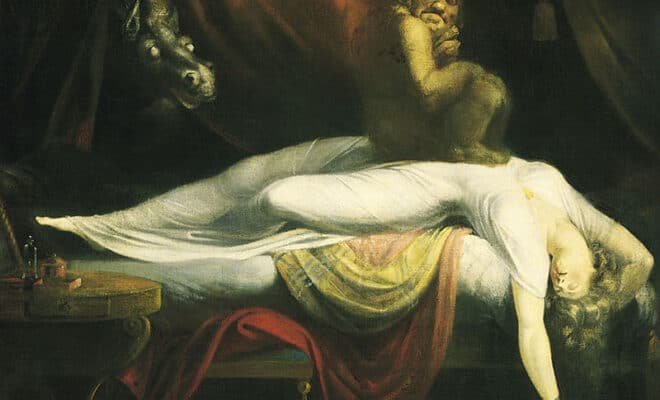The Coldest Case

In the early morning of Friday, September 4, 1964, in Great Falls, Montana, James and Lois Arrotta tragically lost their lives, leaving seven children, ages six months to twelve years, orphaned.
James Arrotta was the general manager of the Super Save grocery store in town, while Lois was a housewife, who took care of her seven babies. The family was well known in their community and attended church regularly.
It is unknown why James and Lois went to the Super Save on this particular night. The police believe someone kidnapped them and the perpetrator brought them to the store to open the safe. Another theory is the burglar alarm went off, causing James to head to the store and surprise the intruder. Unfortunately, the safe was on a time lock and would not open after hours. The thirty-two dollars taken from the till was all the killer stole, along with the lives of two innocent people.
Both were tied up, gagged, beaten, and stabbed. One body was found in the produce department, the other at the rear of the store. One murder weapon, a long knife, was left at the scene. Autopsy results proved it was the weapon used to stab the victims multiple times. The detectives believe James may have known the assailant due to the viciousness of the crime.
The Arrottas’ car, normally left overnight in their garage, was found along a side street, leading investigators to believe the murderer took their vehicle and then abandoned it.
Hours after the killings, an eighteen-year-old former box boy, Alan Reavley, came in for questioning. James fired Alan two weeks prior for stealing $1,100 from the store. The investigators collected his freshly washed clothing from the night before. Detectives questioned Alan’s parents, who said he’d been home playing Monopoly, and they all went to bed at 10:30 p.m.
Six weeks after the murders, police determined Reavley was no longer a suspect because of a lack of evidence. Several other suspected people had an alibi. The night janitor claims he left early that night due to hearing funny noises. The store’s produce manager, known for his volatile temper, had argued with James in the weeks leading up to the murders. He also showed up at work the next day with cuts on his hands.
No arrests were made because the physical evidence at the scene did not match any suspects. Despite efforts to reopen the investigation, the case hung on for nearly forty years.
In August 2001, Great Falls detectives John Cameron and Jere Carpenter reopened the Arrotta murder investigation. By this time, the janitor and the produce manager were dead. The first thing they did was contact Reavley.
Both men questioned Reavley again on the thirty-seventh anniversary of the murders. He maintained his innocence but he made some unusual statements during his interview. He stated he had asked his parents and psychiatrist if he could have done this, and both told him no.
In 1994, at a religious retreat, Alan Reavley told others he had been at the scene of the murders and claimed to find the bodies of Jim and Lois Arrotta. Another attendee testified he heard him say when he was a young man, he had “killed some people.” The police believe Reavley murdered the Arrottas after they surprised him inside the store.
Alan left Montana for several years and moved back in the early 1980s. For twenty years, he worked for several community service organizations. By 2002, now a pillar of the community, Reavley, married with five children, was an active member of the Ad Club and his church.
On the night of March 15, Alan volunteered at one of the most high-profile social events of the year, the Russell Art Auction. Police burst into the main ballroom, handcuffed Reavley in front of a stunned crowd, and led him away.
The public was in disbelief and shock. The town’s people’s sympathy for him soon waned when the police charged him with sixty-four counts of theft. Upon further investigation, his employment record showed he lost several jobs because of theft.
Ten months after his arrest, Alan pled guilty to five counts of felony theft, and the judge sentenced him to twenty years in prison. He had to pay more than $121,000 in restitution.
Along with his arrest for embezzling money, the warrant included the charge of murder for James and Lois Arrotta.
His attorney requested a bench trial, a trial decided by a judge only. Reavley’s attorney was afraid he wouldn’t get a fair trial due to his unpopularity with the townsfolk on his embezzling charges. The prosecutor stated later the biggest regret in his career was agreeing to a non-jury trial.
Alan’s murder trial began on February 9, 2004. The prosecutor questioned over thirty witnesses, and Reavley maintained his innocence throughout. Contamination of the DNA evidence made it unable to extract any viable evidence. District Judge Thomas McKittrick found him innocent of murdering the couple.
Cascade County Attorney Brant Light said he has no doubts Reavley committed the crime. He told reporters, “He should get down on his knees and thank God for getting away with a horrendous crime.”
During an interview a month after his trial, Alan told reporters he regretted pleading guilty to embezzling funds. The money he took he used to buy food for the food bank. Claiming the police never tried to get his side of the story about the missing money, he said, “there were misappropriations of funds, but never put into my bank account.”
His successor called Reavley’s statements unbelievable. “There’s no question of whether he stole from the organization,” he said. “If anything, the $121,000 was the tip of the iceberg. We’ll never know how much cash he stole. “
Alan Reavley served ten years in prison for embezzlement. He still lives in Great Falls at the age of seventy-five.
After the murder of their parents, the children moved in with their maternal grandparents in Oregon. To this day, they are all still haunted by what happened. Dan Arrotta, who was five at the time of his parents murder, recalls knowing something was wrong. His oldest sister became responsible for getting the younger children ready for school. He remembers everyone crying. Looking out the picture window, he expected his parents to come home.
During the years, the siblings entertained their theories about why their parents were killed. Had their father known something he wasn’t supposed to know? It shocked them that it came down to one person, and the reason was simple.
For now, the case is still unsolved. Without new evidence, Alan Reavley will never be accountable for their murders.
Why did Alan’s mother wash her son’s clothing early that morning? How come he placed himself in a psychiatric ward several days after the murder? Did he tell a group of people he was the one who discovered Arrotta’s bodies when he wasn’t in the store? And why did he tell another person he had murdered some people when he was younger?
These questions continue to go unanswered and most likely never will be unless Alan Reavley confesses on his deathbed.
This case is the oldest unsolved murder mystery in Great Falls.









